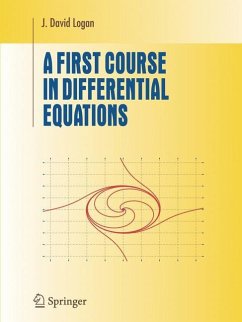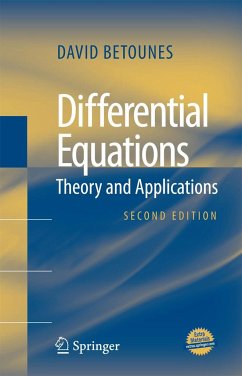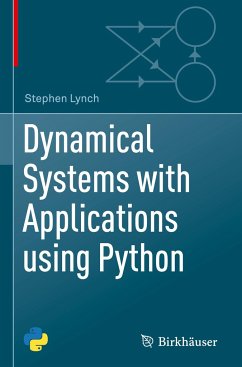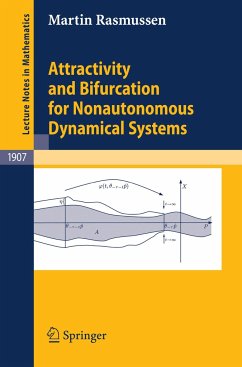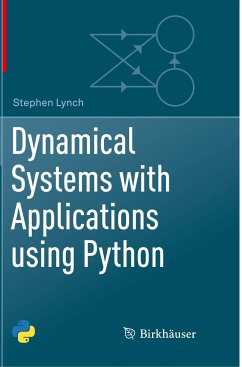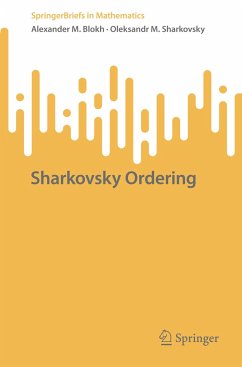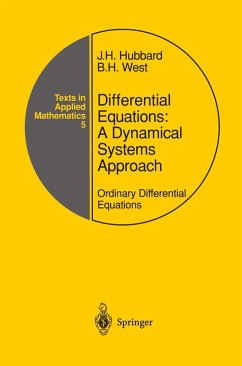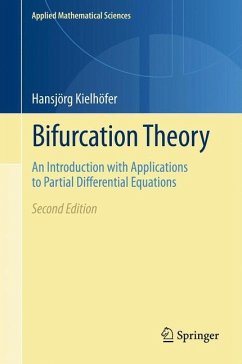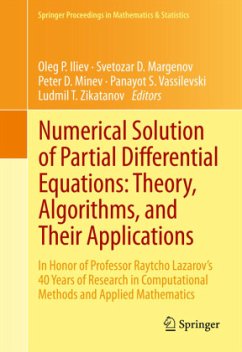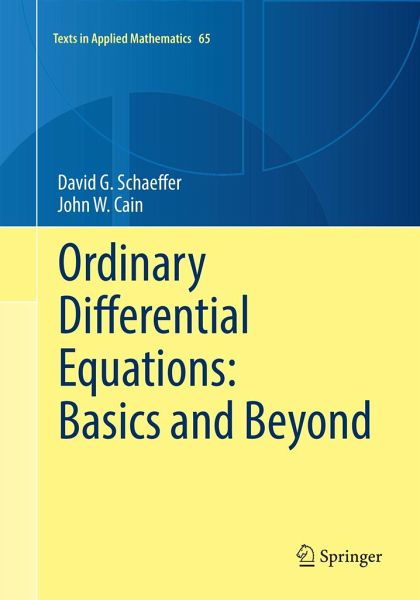
Ordinary Differential Equations: Basics and Beyond
Versandkostenfrei!
Versandfertig in 6-10 Tagen
46,99 €
inkl. MwSt.
Weitere Ausgaben:

PAYBACK Punkte
23 °P sammeln!
This book develops the theory of ordinary differential equations (ODEs), starting from an introductory level (with no prior experience in ODEs assumed) through to a graduate-level treatment of the qualitative theory, including bifurcation theory (but not chaos). While proofs are rigorous, the exposition is reader-friendly, aiming for the informality of face-to-face interactions. A unique feature of this book is the integration of rigorous theory with numerous applications of scientific interest. Besides providing motivation, this synthesis clarifies the theory and enhances scientific literacy....
This book develops the theory of ordinary differential equations (ODEs), starting from an introductory level (with no prior experience in ODEs assumed) through to a graduate-level treatment of the qualitative theory, including bifurcation theory (but not chaos). While proofs are rigorous, the exposition is reader-friendly, aiming for the informality of face-to-face interactions.
A unique feature of this book is the integration of rigorous theory with numerous applications of scientific interest. Besides providing motivation, this synthesis clarifies the theory and enhances scientific literacy. Other features include: (i) a wealth of exercises at various levels, along with commentary that explains why they matter; (ii) figures with consistent color conventions to identify nullclines, periodic orbits, stable and unstable manifolds; and (iii) a dedicated website with software templates, problem solutions, and other resources supporting thetext (www.math.duke.edu/ode-book).
Given its many applications, the book may be used comfortably in science and engineering courses as well as in mathematics courses. Its level is accessible to upper-level undergraduates but still appropriate for graduate students. The thoughtful presentation, which anticipates many confusions of beginning students, makes the book suitable for a teaching environment that emphasizes self-directed, active learning (including the so-called inverted classroom).
A unique feature of this book is the integration of rigorous theory with numerous applications of scientific interest. Besides providing motivation, this synthesis clarifies the theory and enhances scientific literacy. Other features include: (i) a wealth of exercises at various levels, along with commentary that explains why they matter; (ii) figures with consistent color conventions to identify nullclines, periodic orbits, stable and unstable manifolds; and (iii) a dedicated website with software templates, problem solutions, and other resources supporting thetext (www.math.duke.edu/ode-book).
Given its many applications, the book may be used comfortably in science and engineering courses as well as in mathematics courses. Its level is accessible to upper-level undergraduates but still appropriate for graduate students. The thoughtful presentation, which anticipates many confusions of beginning students, makes the book suitable for a teaching environment that emphasizes self-directed, active learning (including the so-called inverted classroom).





